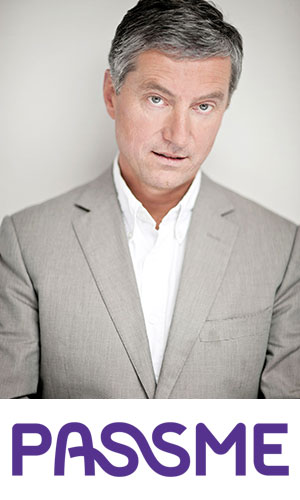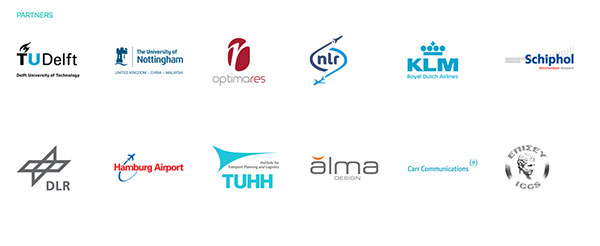
Reducing the door-to-door air travel experience by 60 minutes sounds like an ambitious challenge, but this is exactly what the 12 partners involved in the Personalised Airport Systems for Seamless Mobility and Experience (PASSME) project have set out to achieve.
The project was officially launched in summer 2015 with four key objectives, which will collectively save passengers flying within the European Union a total of one hour on their total travel time. Providing FTE with an update on how the project is progressing, Sicco Santema, Professor of Marketing and Supply Management at TU Delft and Coordinator of the PASSME project, explained why he is so confident that the 60-minute time saving will be achieved come the end of the three-year project.
“We are focused on a few core things,” he said, “but shortening the air travel experience by one hour is certainly a realistic target.” He explained that key areas of attention include reducing the time spent on baggage – from checking in bags to loading and unloading luggage from the aircraft – and reshaping the boarding process. “This includes the gate and the interior of the aircraft, because that also impacts the boarding process and the passenger flow”, he stated. Improved “”passenger devices” to simplify and expedite the airport experience are also central to the project. These devices range from those that can be used by the passengers themselves, to forecasting and analytics tools that can be utilised by airports and their partners to better predict and manage demand for airport services and facilities. Work in all of these areas is already well under way.
Creating a bag-free airport
Of the four key areas being addressed, the proposed changes to the baggage process are perhaps the most drastic, but these changes alone have the potential to shave up to 40 minutes off the journey time, according to Santema.
So how exactly can this be achieved? “We are asking ‘why do we have to bring bags to the airport?’” he said. “It blocks the flow of the passengers and it increases the time taken to check in. You have to load the bag into the baggage handling system, and then you have to load and unload the bags from the aircraft and get them back to the passengers. The ideal picture is a bag-free airport.” Door-to-door baggage delivery services could have an important role to play, suggested Santema, who will share an in-depth update on the PASSME project at FTE Europe 2016.
Removing stress and anxiety

While reshaping existing airport processes is at the heart of the PASSME project, the partners are also delving into the mentality of the passenger to establish which areas of the air travel experience cause the most stress and anxiety, and to explore how these pain points can be remedied. For instance, the Human Factors Research Group at the University of Nottingham is leading research in this area, some of which includes the use of wearable technology.
Importantly, airports and airlines are well represented in the project, with KLM, Amsterdam Airport Schiphol and Hamburg Airport among the 12 partners. Santema revealed that each of these will be taking part in trials half-way through the project as the PASSME vision starts to become reality.
Passenger aviation profiles
The PASSME team is also looking outside of the industry for inspiration, with crowd management techniques used at sports stadiums among those being examined, but a big part of the solution lies closer to home. The air transport industry has long been hampered by a lack of effective data sharing, but Santema explained that PASSME will “use the passenger as the means of sharing the data”, as opposed to trying to break down the silos among stakeholders. “If the passenger is interested they will share the data, especially if it improves the experience,” he said. “People are happy to share their Facebook profile and their LinkedIn profile; we’re just asking them to share their aviation profile with the stakeholders. One thing this is not about is making big data even bigger.”
Although the three-year project is now only eight months old, Santema is clearly buoyed by the progress that has been made to date and has every confidence that the one-hour door-to-door time saving objective can be achieved. If PASSME can indeed deliver on its promise, millions of air travellers stand to benefit.







